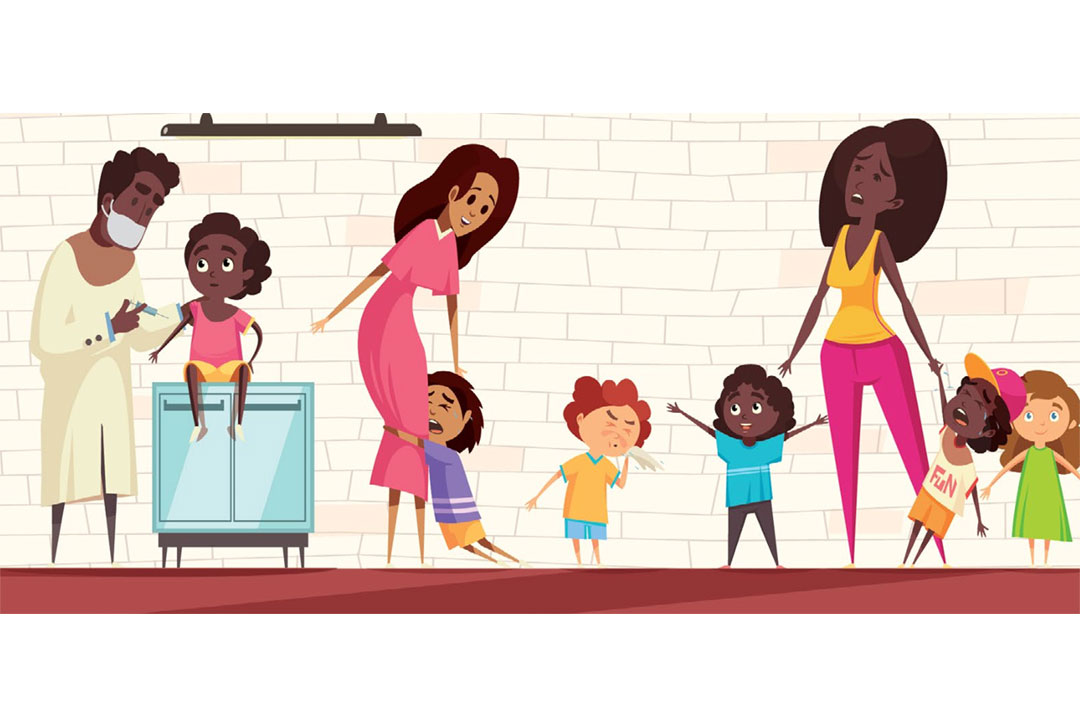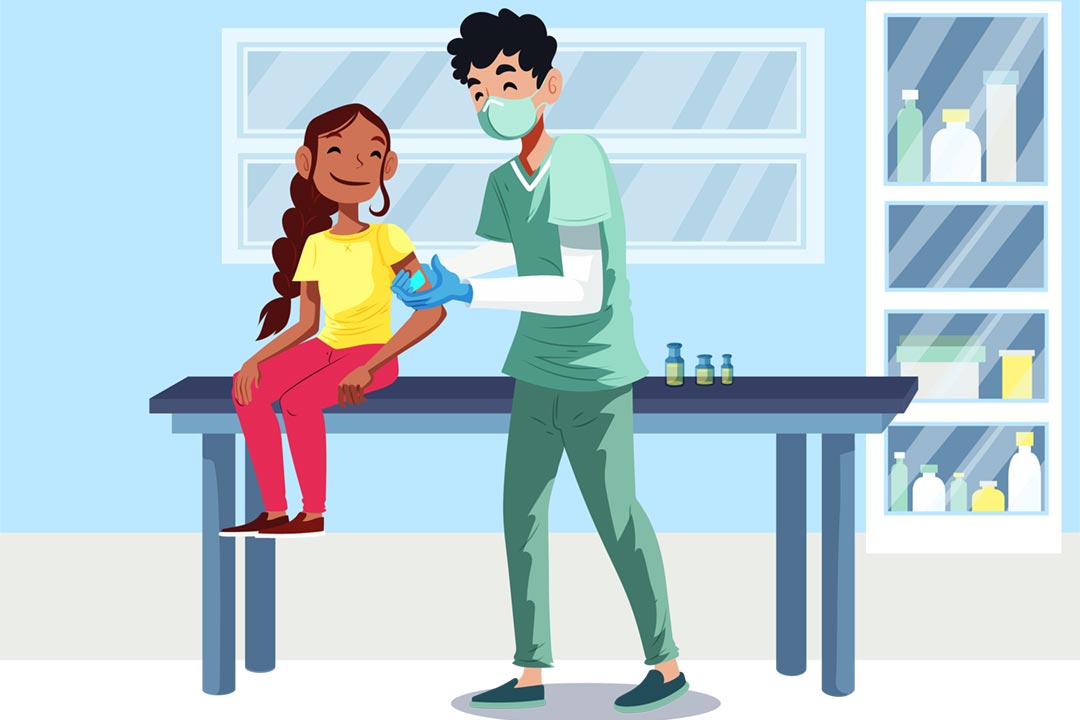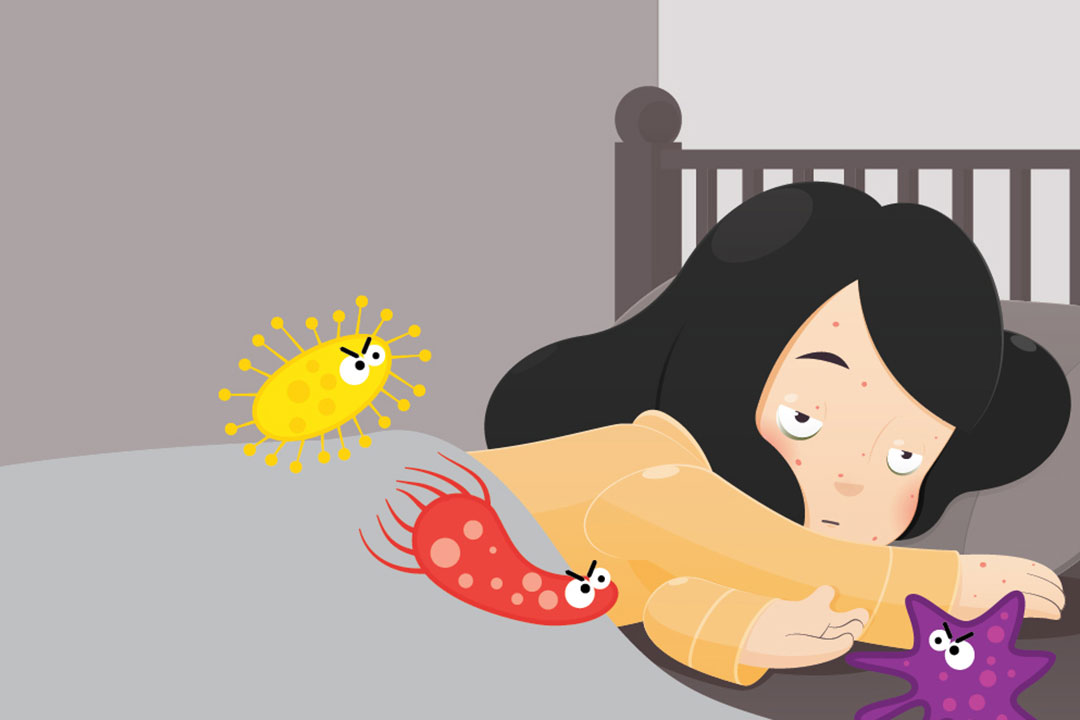How does the way we think affect our choices about vaccines?
Vaccines save millions of lives each year. Yet there are more and more people who are unsure about getting them. Why is that? So far, studies have looked at issues related directly to vaccines. But we think it might be something else. Could it have to do with how people’s minds work? To find out, we asked 356 people different questions about what and how they think, and what they believe.
- 11 July 2024
- 5 min read
- by Science Journal for Kids and Teens
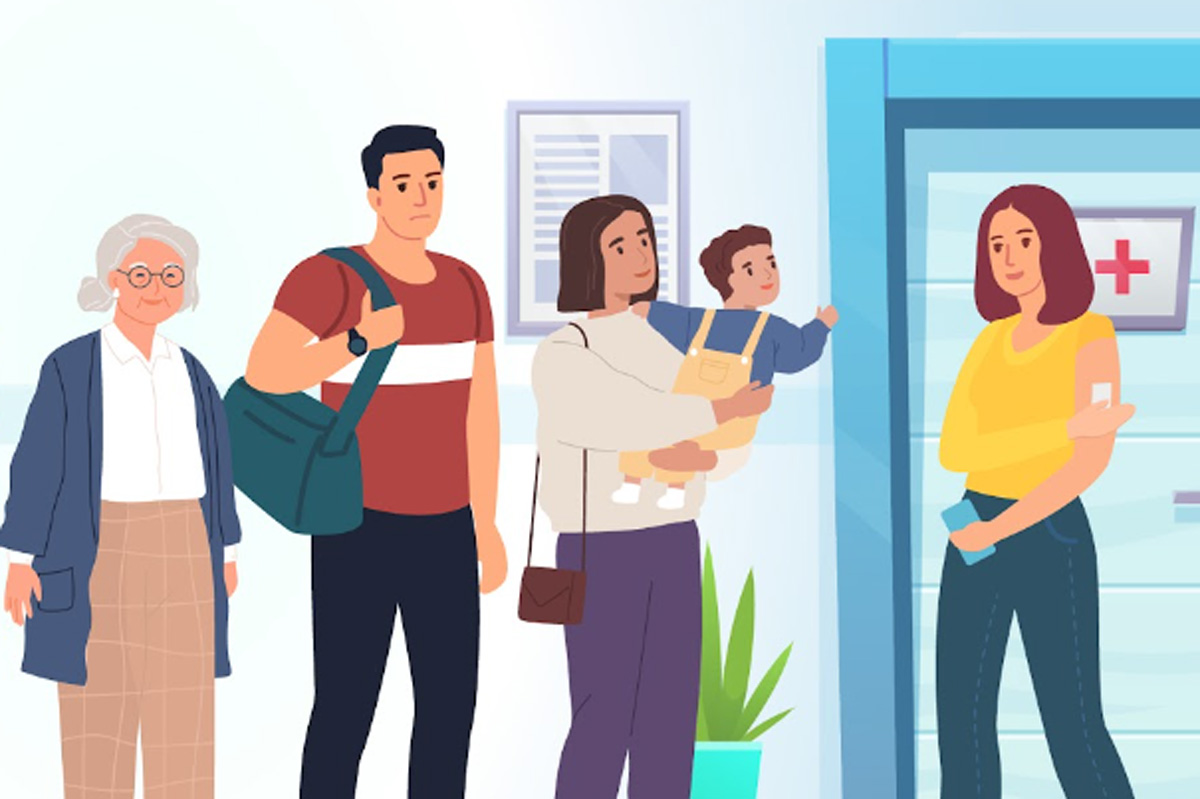
Introduction
Do you know what smallpox is? You might not, since it's an eradicated disease. This means the disease, which was very deadly, doesn't exist anymore. And this is thanks to a vaccine developed to fight it! Vaccines are a great way to protect yourself and others, too.
Nowadays, we have vaccines against many diseases, such as measles and polio. We can eradicate them as well. But many people refuse to get vaccinated, even though they have access to vaccines. We want to know why this is. Previous research looking into this matter has focused on the vaccines themselves. It has looked at what people know about vaccines and if they trust the health system. But we believe there is more to it than that. It's also about the way people think.
Perhaps people who don't trust vaccines also believe in strange things for no logical reason. For example, people who are skeptical towards vaccines may also believe the Earth is flat. We also thought that people who believe in one strange thing often believe in other strange things. But were we right?
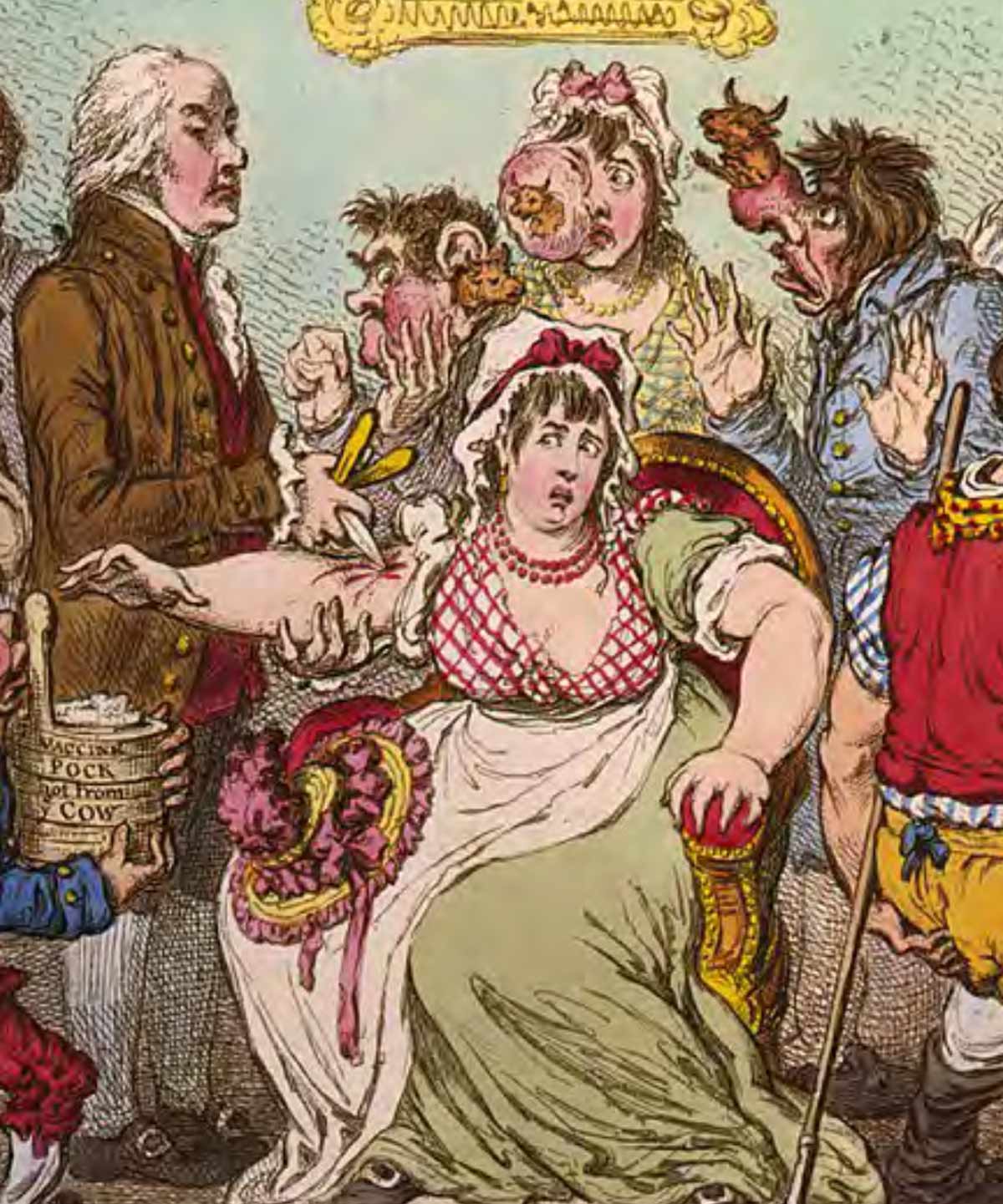
Methods
We asked 356 people to fill out an online questionnaire. We looked at several factors.
- Anti-vaccination attitudes. What are their feelings toward vaccines?
- Smart thinking. How well do they think quickly and solve puzzles?
- Cognitive reflection. Do they think things through and avoid jumping to quick answers?
- Thinking styles. Do they think carefully or trust their gut?
- Strange ideas, such as believing there’s a secret plan behind everything, or mixing up real and fake news.
- Scientific knowledge. How much do they know about science?
- Religious and paranormal beliefs. We asked people about their beliefs in God and the supernatural (for example, witchcraft and astrology).
Results
How people think influences whether they trust vaccines or not (Fig. 1). So, who is more likely to be against vaccines? People who:
- believe in supernatural things,
- have strong religious beliefs,
- confuse different types of things (like thinking that rocks have feelings), or
- like to trust their gut.
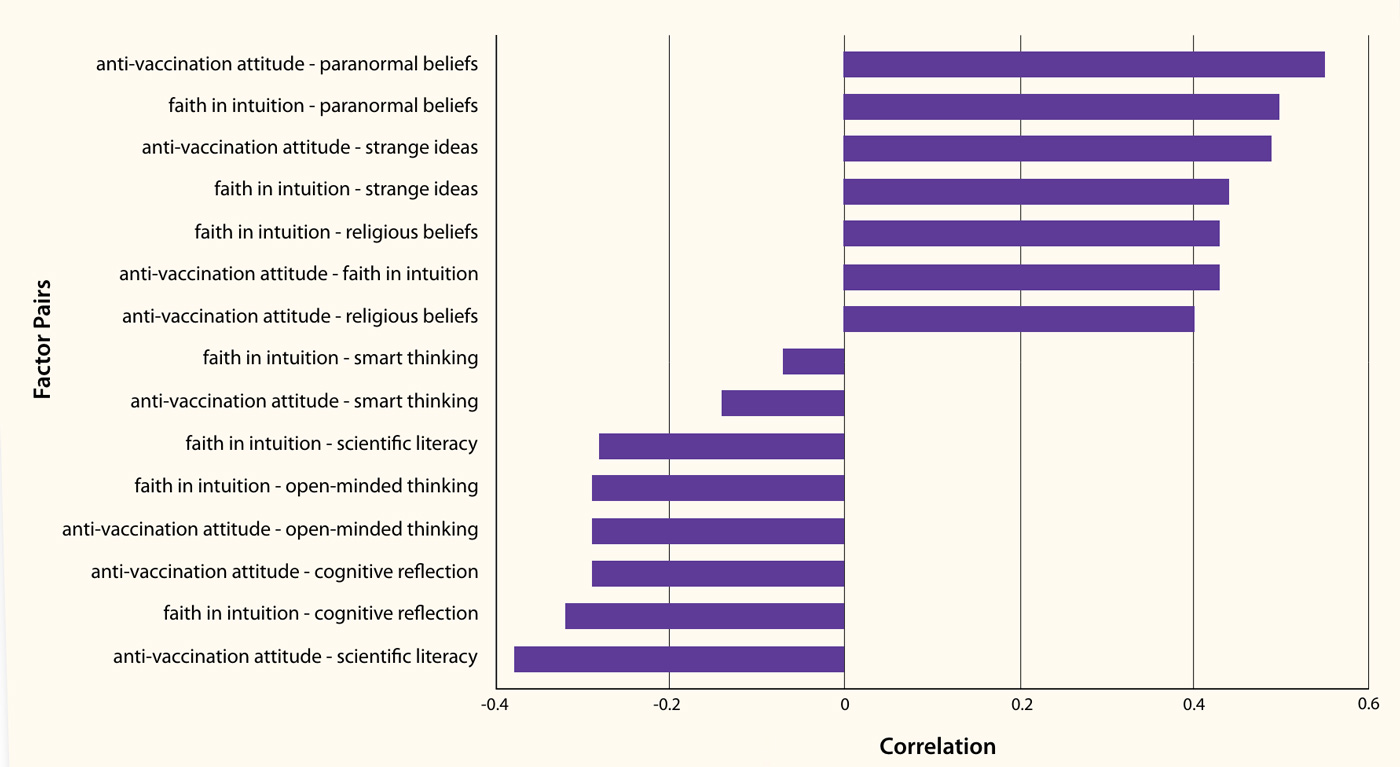
All these factors were also linked to each other. For example, if someone believes in supernatural things, they are more likely to trust their gut, too. You can see all the correlations in Figure 1 above.
And which people were more likely to trust vaccines? Those who had better scientific knowledge and were more openminded.
Discussion
People who aren't fans of vaccines tend to have certain ways of thinking. For example, they believe in magic or rely a lot on their feelings instead of facts. These people also often believe in things like telepathy, astrology, and magic spells. These beliefs are very different from the way science looks at things.
For example, imagine you and your friends are trying to decide if a new video game is fun. Some friends look at reviews, ratings, and facts about the game. That's using logical and scientific information. Others just go with their gut feeling or what they've heard from others. That's intuitive thinking, relying on feelings over facts. In this case, numbers, facts and evidence won't change their mind. Instead, they might listen to stories and personal experiences.
That’s fine for personal decisions about fun things, but it could be dangerous for decisions about your health. It's important to be aware of cognitive biases. That's when your brain tries to trick you into believing something. This is also common in people who like to think intuitively. For example, if you want a game to be great, you might only see the good reviews about it – and ignore all the bad ones. The same goes for hesitancy toward vaccines. We should try to learn about these tricks of the brain. And how to guard against them, so everyone can make better decisions, based on facts. Knowing how our minds play tricks on us might help us avoid believing false information, like that vaccines are bad!
Conclusion
Vaccines are an easy and good way to protect yourself and others against diseases. But changing the way people think about vaccines is not easy. To make things better, we need to start learning about science early. This will help us understand the difference between what's true and what's not. Maybe you have seen or heard some strange stories online. Discuss with your friends how you can tell if they are fake news. By questioning and understanding, we can make better choices about our health.
Glossary of key terms
Cognitive bias - when we think or decide things in a way that might not be totally fair or logical. It's like your brain takes a shortcut instead of thinking everything through carefully.
Cognitive reflection - the ability to think carefully, analyze information, and avoid jumping to quick answers. It involves taking a thoughtful approach to problem-solving rather than relying on immediate, intuitive responses.
Correlation - a statistical measure that describes the extent to which two factors (variables) change together. It shows whether an increase or decrease in one variable (for example, believing in paranormal things) leads to a similar change in another variable (like anti-vaccination attitude). If the two variables have a positive correlation, they tend to increase or decrease together. A negative correlation means that as one variable increases, the other tends to decrease.
Eradication - the complete and permanent elimination of a disease. Fake news - false information that deliberately tries to look similar to news stories. People create fake news to try to mislead or trick others.
Paranormal beliefs - beliefs beyond the scope of normal scientific understanding. They cannot be explained by the laws of nature. This includes ghosts, psychic abilities, telekinesis, etc.
Vaccine - an injection of a killed or weakened pathogen (or even just a piece of the pathogen’s genetic code). This stimulates the immune system against the pathogen (something that makes you sick). This means that the immune system can recognize and destroy those pathogens if they ever come back, and so prevent disease.
References
Marjaana Lindeman, Annika M. Svedholm-Häkkinen, and Tapani J. J. Riekki (2023) Searching for the cognitive basis of antivaccination attitudes. Thinking & Reasoning. https://www.tandfonline.com/doi/full/10.1080/13546783.2022.2046158
UNICEF: 7 consequences and risks of not getting routinely vaccinated https://www.unicef.org/indonesia/health/stories/7-consequences-and-risks-not-getting-your-childroutinely-vaccinated
US Department of Health and Human Services: Immunization information https://www.hhs.gov/immunization/basics/index.html
Science Journal for Kids: How can a community protect everyone from disease? https://www.sciencejournalforkids.org/articles/how-can-a-community-protect-everyone-fromdisease/
